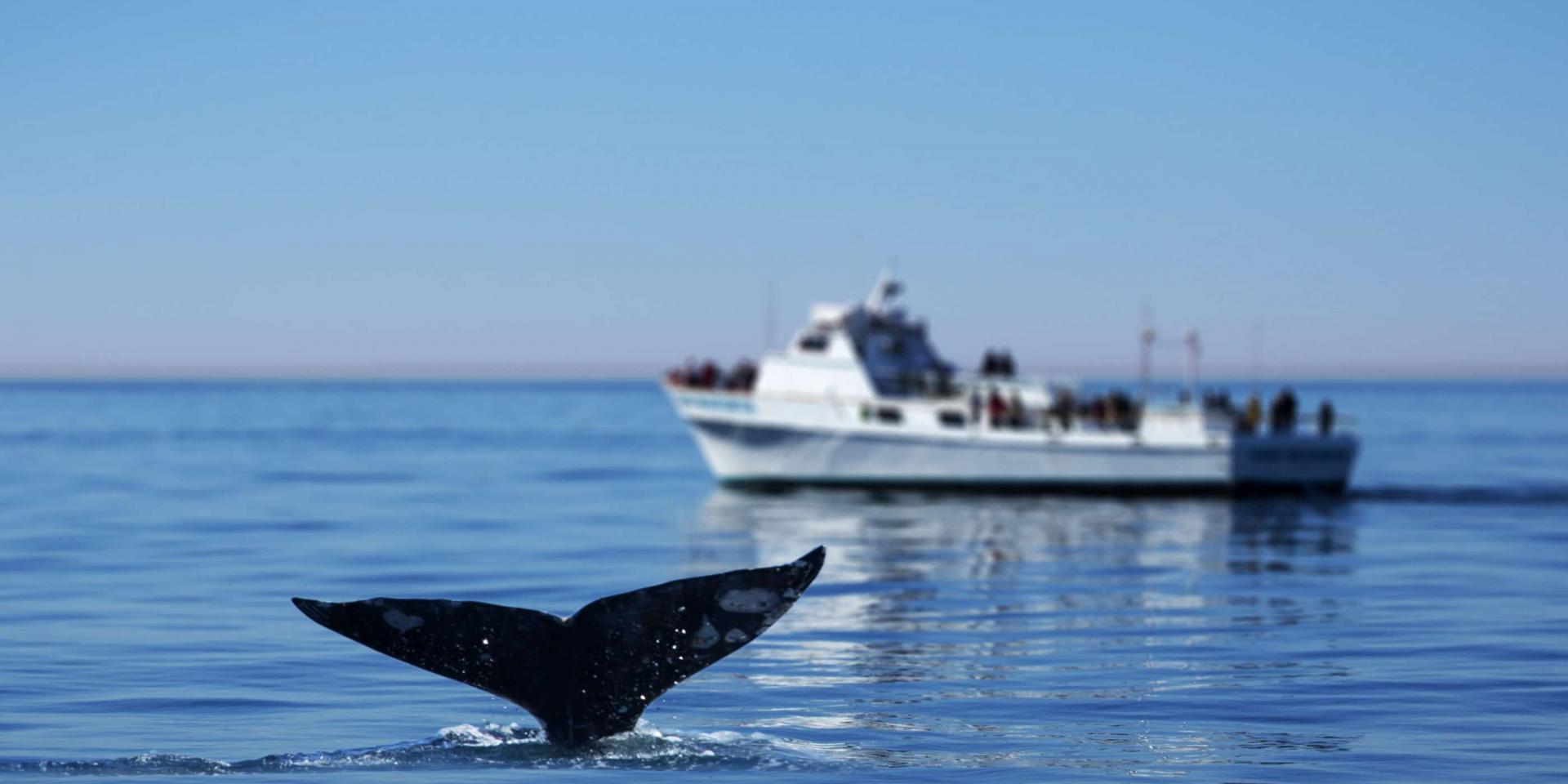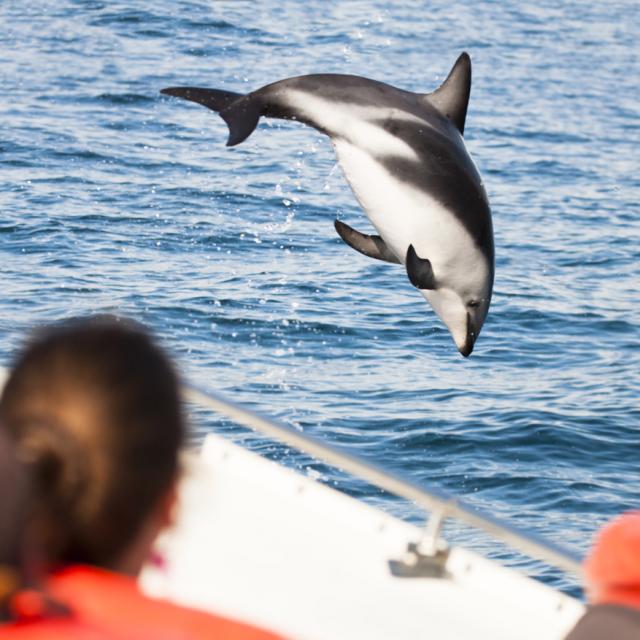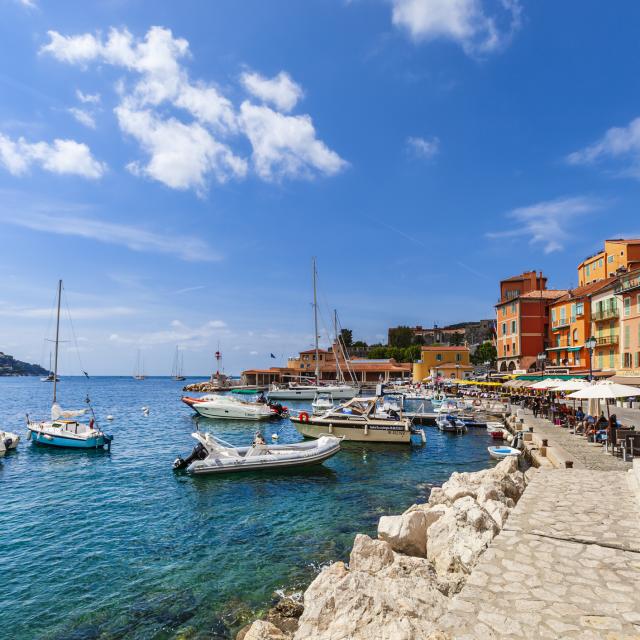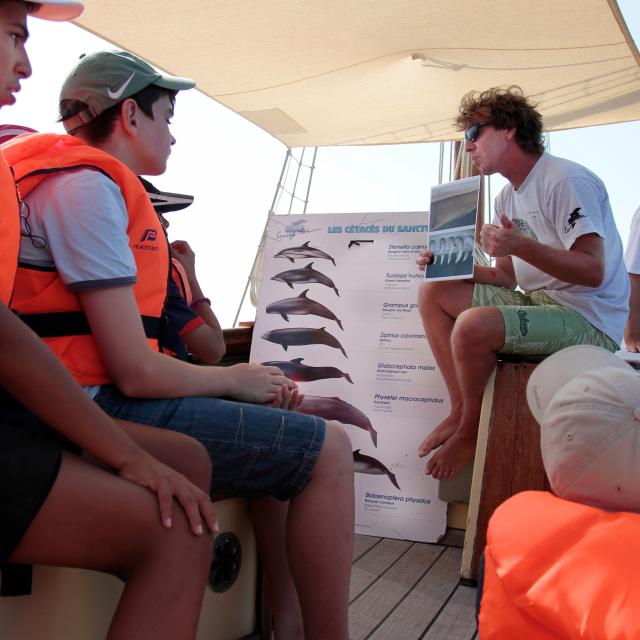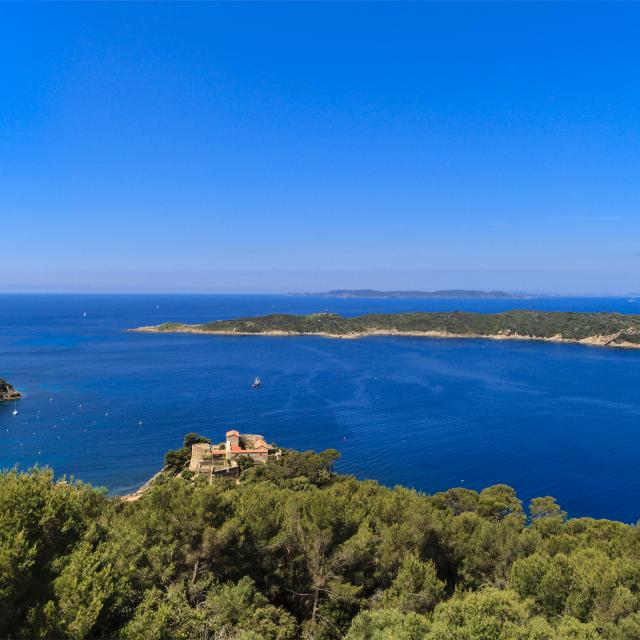Pelagos Sanctuary: remarkable biodiversity
With its 87,500 km² of maritime space, the Pelagos Sanctuary is home to a highly valuable biological heritage. Many species of cetacean are regular visitors. Sperm whales, dolphins, whales – more than 8,500 animal species are protected and observed here! Harmonious management of human activities is an essential part of advancing research. This constructive dynamic is developed with respect for the species present and the natural environment that surrounds them.
The originality of the Pelagos Sanctuary for Mediterranean marine mammals lies in the fact that it is a tripartite management zone between France, Monaco and Italy in a coastal and open sea area of great scientific, socio-economic, cultural and educational interest. A unique opportunity during your stay on the Côte d’Azur to discover the most beautiful cetaceans in the Mediterranean at the heart of the Pelagos sanctuary.

